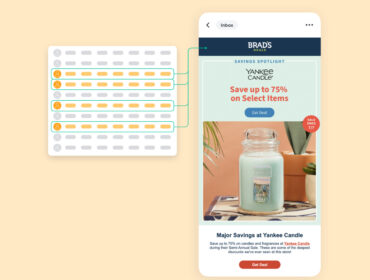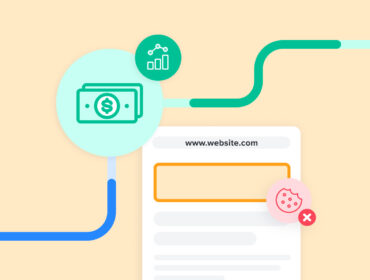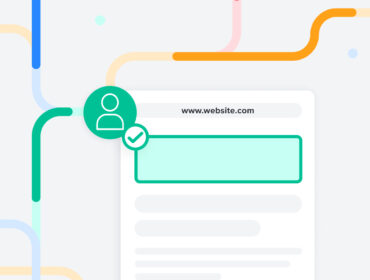Google has the Chance to be the First Walled Garden that Gives the Consumers the Power to Reward Publishers
I read the Google announcement astonished, not because they reversed their decision but because it finally dawned on me: None of the walled gardens imposing third-party cookie changes gave consumers any real agency over that decision.
The fundamental question is: Is Google reversing its decision because they want to give consumers choice, or because they want to push the market in a certain direction? Apple certainly took the latter approach, brilliantly marketed under the guise of “privacy”.
When Apple shut off third-party cookies on Safari, Publisher web CPMs dropped by 77%. When Apple shut off IDFA, Publishers’ mobile inventory suffered with a 50% drop in Facebook Audience Network CPM revenue.
When Apple deprecated IDFA, they didn’t deprecate it for themselves. As Paul Bannister pointed out on LinkedIn, Safari’s newest update will let users “erase” parts of web pages (like ads) that they don’t like. News publishers, as always, will get hit hardest. Except of course, when that news publisher’s property is an Apple app like News, Apps in the app store, etc.
Where is the choice for the consumer when it comes to Apple? Safari blocked third-party cookies by default. Their wording for ATT (App Tracking Transparency) was so manipulated it might as well have asked the customer “would you like a disease?”. Apple’s Mail Privacy Protection (MPP) didn’t even afford Email Publishers that flexibility. There’s just a blanket “yes/no” for the entire inbox. We’re in the middle of an election. Do consumers really want to apply the same email privileges to an ecommerce store for a one time purchase never revisit that they apply to a trusted news source?
This is what Google must realize: Not all publishers are created the same anymore than all Apps are created the same. Give customers some agency in deciding which brands and Publishers they want a relationship with.
There are two internets: the trusted web – websites I give consent to and want a relationship with, and the open web – every other website.”
Opt-in should be asked site by site
Google can choose two paths: A user is asked “do you want to universally opt-out of a relationship with all sites you visit” or “do you want to opt-out from a relationship with this specific site you are now visiting”.
It might be an inconvenience for consumers to manage third-party cookie opt-ins by publisher domain, but it’s a pittance compared to GDPR, which makes you do it once per website per session. A more bespoke option delivers what all consumers want: the ability to build relationships with some brands and publishers but not others.
I have a mountain bike. I need to buy a replacement Derailleur Hanger, a once in a lifetime purchase (unless things go wrong). Do I want a repeat relationship with that brand? No. I also have a weak spot for Domino’s. Do I want Domino’s to remember things about me, like the points I’ve earned, or that I think pineapple on pizza is very good (Judge not, that ye be not judged)? Yes.
Extend that to the world of Publishers: Do I want a relationship with the WSJ and NYT? Yes, I support journalism, and also I’d like to know about the world around me. Do I want a relationship with an MFA site someone tricked me into clicking on by promising me “17 salacious facts I didn’t know about an actor from 1973.” No.
But I want the choice. I don’t think treating the consumer like someone incapable of understanding “do you want a relationship with this brand or publisher” is too byzantine for a customer to understand.
I want Weather.com emails to be relevant to me when I open them the same way I don’t want to be made aware of sales that already happened. I want Uber to send me an email relevant to my ride and my travels. I don’t want the company I bought a Derailleur Hanger from to email me about newer Derailleur Hangers. But Apple doesn’t give me the ability to distinguish between different types of email publishers the way it lets me choose permissions between Apps. If Google doesn’t want to be stained with suspicion about market manipulation, it must take a different approach.
Google Can Still Win Trust of Consumers AND the Ecosystem
Google has stated emphatically that once the Privacy Sandbox era begins, it’ll hold itself to the same standards it puts on other marketers. It has done so because Google says it believes in fairness and in supporting journalism and publishers. One also imagines it’s done so because it’s seen how Apple treated Publishers and Brands fighting to build consented relationships and deliver information to consumers in tougher times than ever. This is Google’s opportunity to offer a better solution than what Apple delivered: tyranny and publisher subjugation disguised as helping consumers.
Give customers the chance to reward premium brands and journalism. We already have so many mechanisms and tools to separate the wheat from the chaff (doubleverify, IAS, the TTD 500, etc.). Let’s give that power to the consumer: let them choose who is worth their consent and who is not in order to reward the consumer’s view of quality with advertiser demand and revenue.
Once again, the simplest, most straightforward solution is the best solution.


